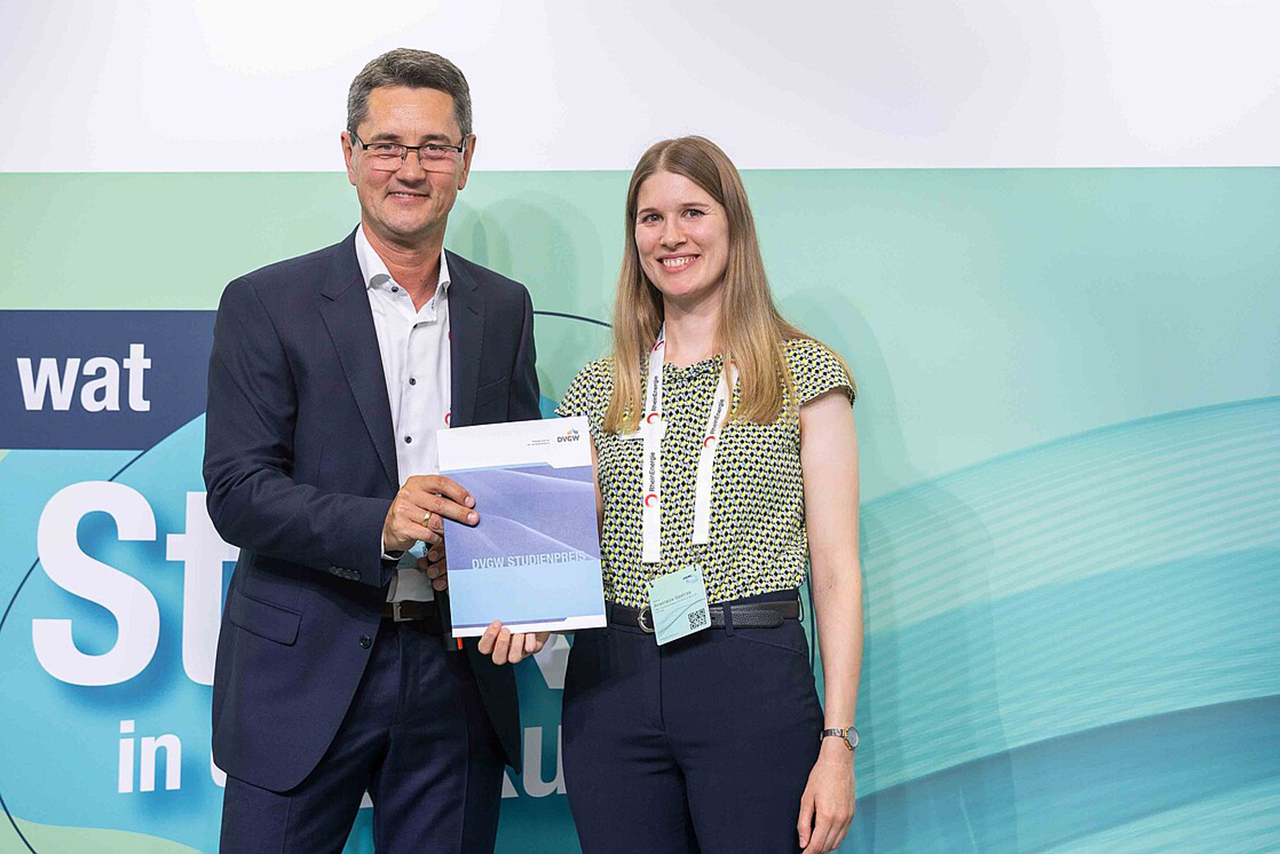Anastasia Gedicke receives the DVGW Study Award for her master's thesis on analysing low-emission system concepts for gas and measuring systems

Since 1984, the German Technical and Scientific Association for Gas and Water (DVGW) has been supporting young engineers with its study award. The DVGW Student Prize is awarded for bachelor's, master's and diploma theses that have a practical connection to technical and scientific issues in the energy/gas or water sector and have been rated as "very good".
At the gat | wat 2023 congress of the energy and water industry in Cologne on 6 September 2023, the DVGW awarded prizes to four outstanding academic theses in the fields of gas and water. DVGW Vice President Markus Last presented the DVGW Study Award for the Gas Division to Anastasia Gedicke, a graduate of the Master's degree programme in Energy, Building and Environmental Technology at the Faculty of Engineering at HTWK Leipzig.
This was the second time that Anastasia Gedicke's master's thesis on "Technically economical analysis of low-emission system concepts for gas preheating using the example of the gas pressure control and measuring systems of ONTRAS' Berlin ring pipeline system" had won over a specialist jury. She received the KARL KOLLE Prize 2022 during the graduation ceremony of the Faculty of Engineering in spring 2023. The thesis was supervised by Prof. Dr Robert Huhn, Professor of Gas and Heating Networks at the Faculty of Engineering at HTWK Leipzig, and Dr habil. Steffen Päßler, Head of the Central Network Division at ONTRAS Gastransport GmbH.
Master's graduate Anastasia Gedicke is now doing her doctorate at HTWK Leipzig and TU Bergakademie Freiberg on the topic of "Energetic and technical optimisation of an innovative gas drying process with triethylene glycol and subsequent regeneration with membrane technology using fuzzy pattern classification methods".
In her multi-award-winning master's thesis, Anastasia Gedicke investigated various concepts for preheating natural gas at pipeline network level in order to find out how fuel consumption and climate-damaging emissions from gas pressure regulating and metering stations (GDRMA) can be reduced. This is because reducing the pressure of natural gas at GDRMA results in a cooling effect that has to be compensated for by preheating due to undesirable side effects. This preheating in existing systems is currently mainly realised using low-temperature boiler systems, a technology that can now be considered outdated due to its inefficiency compared to other heat generators. Anastasia Gedicke carried out an economic-ecological comparison of various lower-emission preheating concepts (including the integration of solar thermal energy and air-to-water heat pumps or inline preheating) by performing economic efficiency calculations and estimating greenhouse gas emissions. Her results provide a valuable basis for the further planning and implementation of decarbonisation measures at GDRMA.
What Anastasia Gedicke will do after her doctorate is still up in the air. She is currently in the first year of her doctorate and is open to a professional future in research, teaching and business.